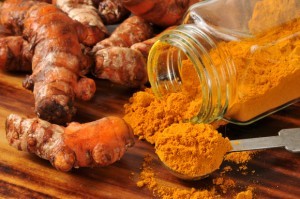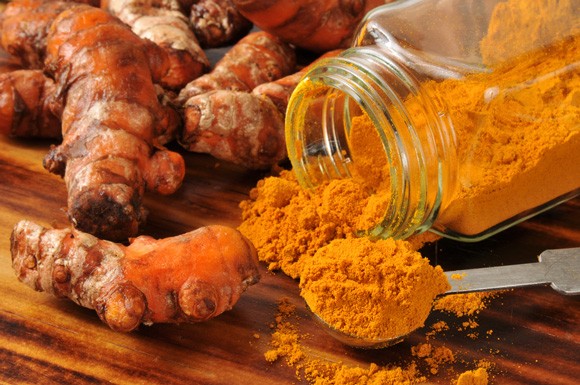
Turmeric may be the most effective nutritional supplement in existence. Many high quality studies show that it has major benefits for your body and brain. Here are the top 10 evidence-based health benefits of turmeric.
Curcumin is the yellow pigment associated with the curry spice, Turmeric, and to a lesser extent Ginger. It is a small molecule that is the prototypical ‘curcuminoid', and has effects similar to other polyphenols but unique in a way as it is a different class of polyphenol (relative to the other classes of ‘flavonoid', ‘stilbene', etc.)
It exerts potent anti-inflammatory effects, and these anti-inflammatory effects seem to be quite protective against some form of cancer progression. However, curcumin has additional anti-cancer effects that are independent of its anti-inflammatory effects and thus is a heavily researched molecule for both cancer prevention and treatment.
Other areas of interest as it pertains to curcumin are alleviating cognitive decline associated with aging, being heart healthy by both electrical means and reducing lipid and plaque levels in arteries, and both reducing the risk of diabetes and being a good treatment for the side-effects associated with diabetes.
Adding just one gram of turmeric to breakfast could help improve the memory of people who are in the very early stages of diabetes and at risk of cognitive impairment.
The finding has particular significance given that the world’s ageing population means a rising incidence of conditions that predispose people to diabetes, which in turn is connected to dementia.
Early intervention could help to reduce the burden, whether by halting the disease or reducing its impact, said Emeritus Professor Mark Wahlqvist, from the Monash Asia Institute at Monash University.
Just 1 g per day
In the placebo-controlled study, subjects were given one gram of turmeric with an otherwise nutritionally bland breakfast of white bread. Their working memory was tested before and some hours after the meal.
“We found that this modest addition to breakfast improved working memory over six hours in older people with pre-diabetes,” Professor Wahlqvist said.
“Our findings with turmeric are consistent with these …
One of the challenges with curcumin is that humans have an extremely poor absorption of curcumin in the gastrointestinal tract. When we take a powdered form (as capsules), the curcumin itself is not absorbed but breaks down into a number of metabolic products which are much less beneficial than the curcumin itself. However, mixing curcumin with fish oil, coconut oil, or extra virgin olive oil greatly increases absorption – up to seven times improvement. If you don’t want to fool with that mixing mess and want a relatively inexpensive supplement form, use the curcumin phytosome complex supplements that are readily available. Recent research has shown that this form’s bioavailability in the human body is approximately four times better than plain curcumin.
Don’t exceed the recommended dose of turmeric (curcumin). In high doses, it may cause stomach upset and ulcers. If you have diabetes, turmeric may lower blood sugar to dangerous levels, especially if you’re also taking diabetes medication. Do not take curcumin before speaking to a physician if you have gallstones, a bile duct disorder or if you’re taking medications such as stomach-acid drugs or blood thinners, including aspirin.
Please Read this Article at NyrNaturalNews.com





Leave a Reply